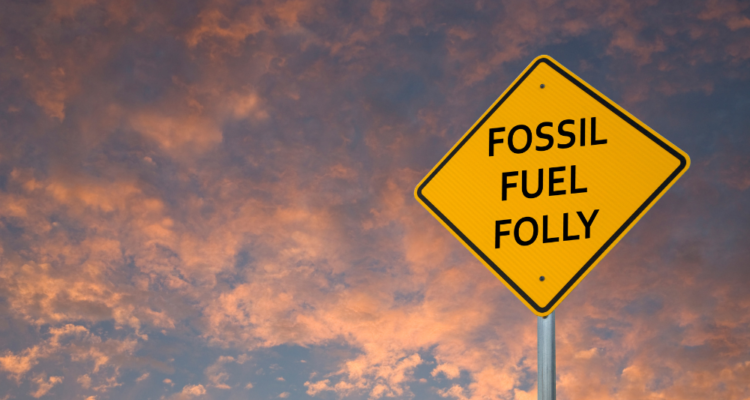On September 17, I joined several of my sisters with United Women in Faith at the March to End Fossil Fuels. We hailed from Kentucky, Pennsylvania, and all over New York, where our organization is headquartered. Together, we took faithful action to urge President Joe Biden to end our nation’s reliance on fossil fuels.
We have no more time to wait, and no more excuses to offer. The United States must end its reliance on fossil energy that is killing us slowly but surely through air pollution, toxic by-products, and further exacerbating the climate crisis.
The march was a precursor to the United Nations’ Secretary-General’s Climate Ambition Summit, which was held on September 20. The historic turnout at the march was a demonstration of growing impatience around inaction on climate change. We are no longer willing to wait.
In total, more than 75,000 people participated in the march including national environmental and faith groups, people of all ages, and even international allies. For our part, United Women in Faith marched faithfully following the lead of frontline communities and joining voices of all faiths in demanding justice for people and creation.
As I thought of the significance of the gathering and the growing frustration over the lack of action to ensure clean energy, I realized that my work has cultural and spiritual significance. As a Latina mestiza, I recognize the legacy of resilience and resistance in my Latinix community, our practices to conserve paired with trust in providence to always welcome more at the table. Many of these practices are rooted in the wisdom of our Indigenous ancestors and Indigenous communities that have long resisted and maintained a relationship with creation based in mutuality and interdependence.
Mark Magana, founder of Green Latinos calls these practices – passed down from our parents and grandparents to conserve food, energy, water – ‘cultural environmentalism.’ And while you won’t see los abuelos y abuelas; our grandparents in a ‘Who’s Who’ of climate activists, for our Latinix community they were the first teachers of environmental stewardship we had, teaching us to love all what God has created. Spiritually, I get to not only answer to my Christian call to stewardship but to see God’s love and creativity manifested in creation. I’m often in awe by the many forms it takes and how God’s love lives in relationship to complex systems which I get to witness and be part of. This is both a humbling and dignifying experience.
As a Christian woman I strive to honor the sheer act of love it took to create the world that we enjoy today. Creation is a manifestation of God’s love for humanity. And as a Christian, I should be embodying the love that God has shown. Our faith calls us to love one another and creation and to take the streets and march for justice in times like these.
Participating in the march was meaningful as it was an opportunity to see grassroots organizers of all races, ethnicities, and religious affiliation. It was a chance to see myself as part of something so much bigger than myself. But it was also a chance to be a faithful witness in the fight to end the reliance on fossil fuels. It was a chance to say to people – including Black, People of Color, Indigenous and frontline communities like mine – who are living next to oil and gas facilities and infrastructure, I see and honor you. For people impacted by fossil fuels and climate disasters across the country, this was a moment to remind ourselves that our fight is global and that we are all impacted.
I marched with the intention of carrying on the work of people like Dolores Clara Fernandez Huerta, one of the most influential labor activists of the 20th century, and Ceasar Chavez, a staunch advocate for environmental justice. I marched understanding that as a Christian, I am mandated by God to care for creation, and nothing is more caring that advocating for the elimination of fossil fuels through a prompt and just transition that leaves no one behind.
We know that our work is much broader than marches, but we cannot forget the beauty of uniting in solidarity with people who are similarly fighting as we are. We also know that important work happens between mass mobilizations such as the Sept. 17 march. We have been supporting partners’ direct action, engaging our members, sending letters to legislators, and otherwise making our voices heard. For instance, we united in solidarity with the Green Climate Fund’s appeal to the White House to for the second replenishment of the Green Climate Fund (GCF). The GCF is the world’s largest multilateral fund dedicated to investing in developing countries to address the climate crisis. This will ensure that transitioning to just energy is broader than an intention, but an embodied commitment. We cannot achieve just energy if we are unwilling to fund it. As Christians and peacemakers, we are being called to the peripheries of this ecological crisis and respond to its many challenges, but we must see this as an opportunity to re-build our relationships with human and non-human creation centering justice, equity, and love.
IIka Vega is the executive for economic and environmental justice at United Women in Faith.

